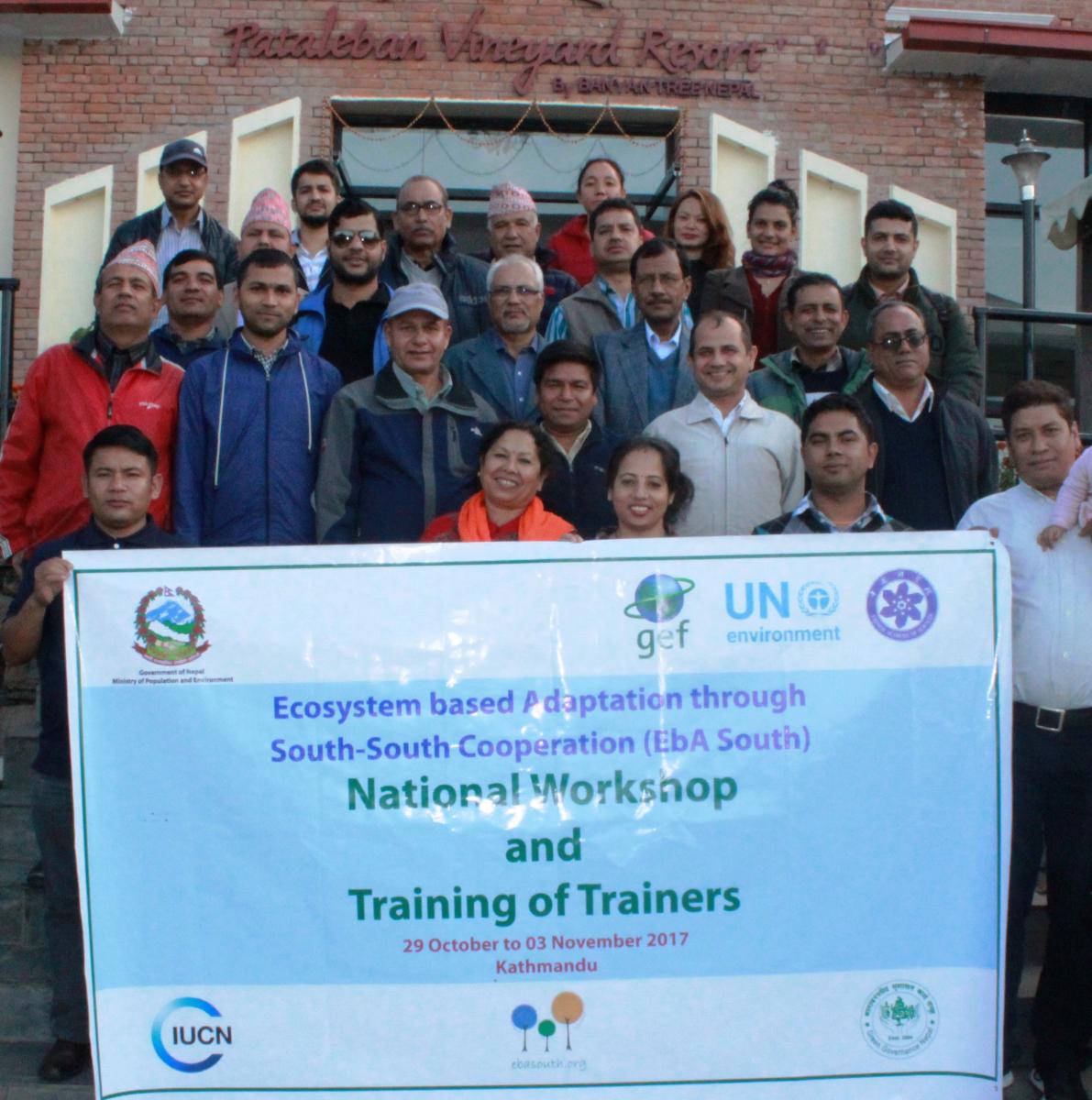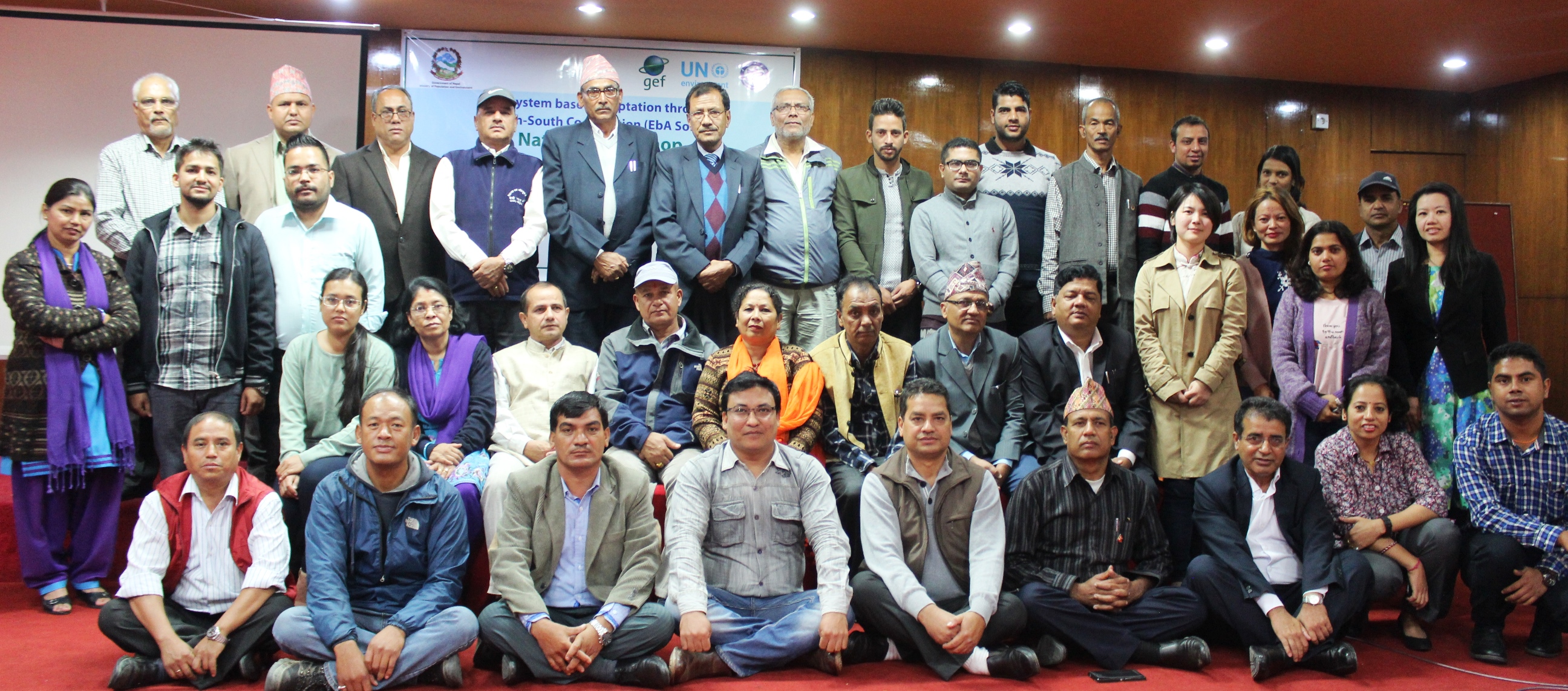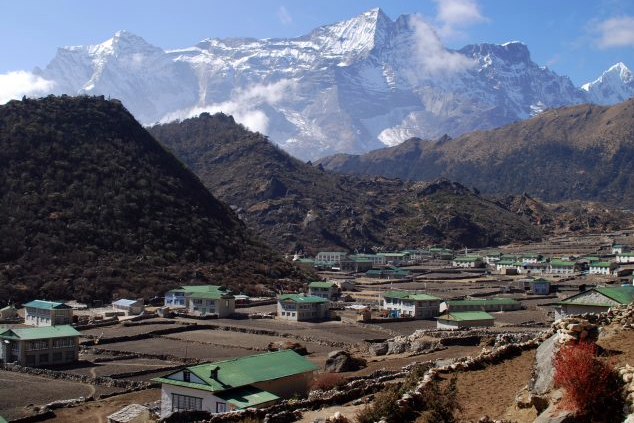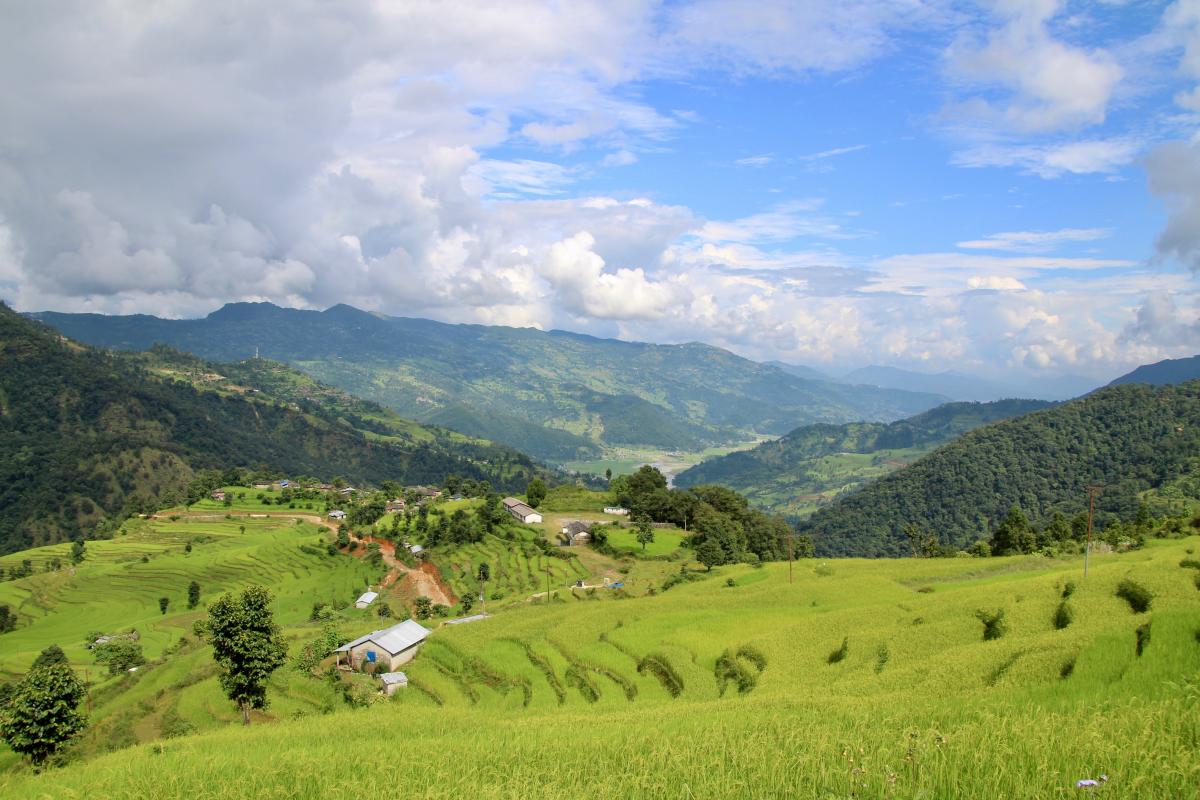Nepal’s ecosystem-based adaptation experts trained to train local communities
In November 2017, a two-day national level workshop and a four-day Training of Trainers (ToT) were carried out in Kathmandu, Nepal, as part of IUCN’s “Enhancing Capacity, Knowledge and Technology Support to Build Climate Resilience of Vulnerable Developing Countries” project.
The workshop’s aim was to enhance the ability of stakeholders to plan, implement, finance, research, and legislate in support of Ecosystem-based Adaptation (EbA) approaches in mountain ecosystems, and its 52 participants included scientists, practitioners and government staff from Nepal. The goal of the ToT was to prepare a group of 20 trainers to support climate change resilience-building within their country and train stakeholders on EbA approaches at district and community levels. Participants of this event included experts in ecosystem-based approaches to climate change adaptation.
Both the events were facilitated by IUCN and Green Governance of Nepal (GGN) in collaboration with the Nepal Ministry of Population and Environment (MoPE).
According to the Global Climate Risk Index (for 1997–2016), Nepal ranks 26th among countries most affected by climate change, but ranks 134th in preparedness to adapt to its effects. EbA, which focuses on using local natural resources sustainably and updating traditional practices, is one of the most successful initiatives being carried out by governments and NGOs to improve Nepal’s climate change resilience.
The EbA project being carried out by IUCN, which builds climate resilience by increasing institutional capacity, mobilising knowledge and transferring appropriate adaptation technologies, is known as ‘EbA South’ (Ecosystem-based Adaptation through South-South Cooperation).
This project is funded mainly by the Global Environment Facility’s Special Climate Change Fund, is implemented by the United Nations Environment Programme and is executed by the National Development and Reform Commission of China through the Chinese Academy of Sciences Institute of Geographic Sciences and Natural Resources Research.
The results of the national level training workshop were encouraging. The most effective aspect of the event, according to participants, was the field visit. Additionally, more than a quarter of the participants said that they gained valuable insight into issues such as vulnerability assessment, cost/benefit assessment and EbA mainstreaming. More than 75% percent of the ToT participants felt that the training helped them become better instructors.
The agencies involved in the implementation of both events believe that most of the objectives were met. Scientists, researchers, members of the local community and government officials are now aware of the latest EbA research and practices. Similarly, a pool of experts has been created to share this vital information with grassroots stakeholders. Undersecretary at the MoPE, Ram Hari Pantha, says: "Such trainings and workshops have helped us develop a pool of experts in the field of EbA, and to link and connect already completed, ongoing and upcoming EbA programmes in Nepal.”
With their knowledge newly shared, Nepal's experts are now more prepared to help local communities adapt to the effects of climate change.





